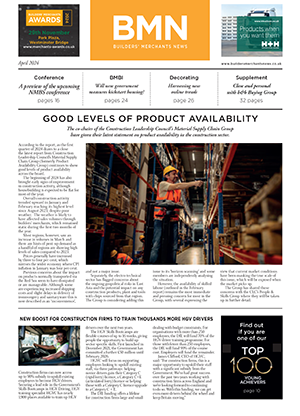Mark Robinson, Scape Group Chief Executive, explains how modular construction could solve the lack of social renting homes in England and Scotland.
Not enough homes for social rent are being built across England and Scotland, and with 1.38 million households currently on council waiting lists, we need a solution fast. Since the peak of council house building in the 1960s and 70s social housing delivery has been the preserve of housing associations who, with the best will in the world, are not delivering the numbers needed to meet demand.
We recently surveyed council officers at local authorities across England and Scotland, who are equally concerned about the number of social rented homes being delivered and would like to take back responsibility for delivery. In England, local authorities would like to build 18 times more homes for social rent than they are projected to complete. While in Scotland councils would like to build eight times more.
Registered Social Landlords (RSLs) in Scotland have delivered on average 3,461 rented homes a year – a drop in the ocean to the number of homes needed to house everyone on council waiting lists. At the current rate of delivery, it will take 30 years until each household on local authority waiting lists in Scotland has a home. The reality south of the border is similar, with housing associations in England completing just 4,500 homes for social rent in 2017/18 – down almost 20% since 2015/2016.
While this paints a very stark picture when set against housing need, Westminster and Holyrood are at least acknowledging the need to allocate more funding. In Scotland’s recent budget the SNP pledged to invest £825m towards the provision of 50,000 affordable homes – including 35,000 social rent homes. In England, Theresa May’s announcement that the Housing Revenue Account (HRA) borrowing cap would be scrapped was welcome news. But, if these policies are the starting gun to increased delivery, there are other issues to overcome that funding can only go so far to address.
The Government finally published their immigration white paper, which sets out an end to free movement and the introduction of a skill-based immigration system that will come into effect in 2021. Since the financial crash in 2008, the UK constriction industry has become increasingly dependent on talent from the EU. The proportion of EU migrants in the construction sector rose from 3.65% to 7.03% between 2007 and 2014. Given that three-quarters of EU nationals currently working in Britain earn less than £30,000 in sectors such as construction, the UK is doing nothing to encourage the 40,000 EU citizens with low skills who currently reside in the UK to remain. We are going to face a real problem come 2021.
This issue sits on top of a rapidly ageing workforce and an existing lack of UK nationals with the necessary skills. In our recent poll senior council officers from across the UK cited the skills shortages as a major barrier to the delivery of social housing.
Local authorities need to embrace Modern Methods of Construction (MMC) to circumvent the skills shortage and speed up the delivery of new homes. By using MMC, it is possible to build up to four times as many homes with the onsite labour required for a traditional build. Modular homes can be assembled with relative ease and alleviate many of the challenges the traditional housing market currently faces. Crucially, factory-based production does not generally draw from the same labour pool as on site construction, so is not competing for the same skills.
Modular and offsite construction can also provide programme savings of up to 50 per cent compared to traditional forms of construction. One of the largest benefits is greater certainty on timings and cost with offsite construction less impacted by external factors than traditional onsite builds. Even something as simple as the weather can have huge knock-on implications to the build rate on new sites. While this winter has been relatively mild, the construction industry took a huge output hit at the beginning of 2018 due to the ‘beast from the east’.
The Government, local authorities and the industry need to work together to make modular construction a mainstream solution to meeting housing need. A review of planning policy could see pre-approved modular designs ‘fast-tracked’ through the planning system or pieces of land allocated specifically for modular homes. The new immigration system is not favourable for the construction industry, so it is essential that attitudes towards building change.
Scape Group’s research reports can be downloaded from www.scapegroup.co.uk/research








